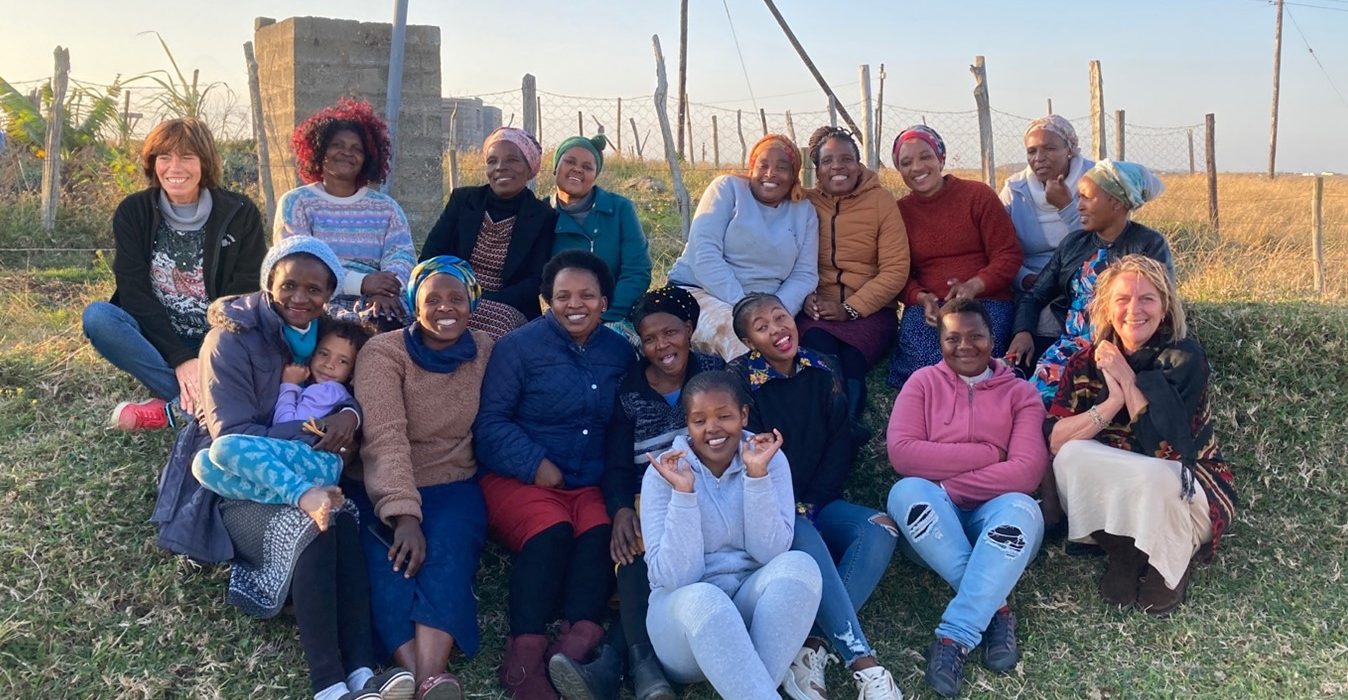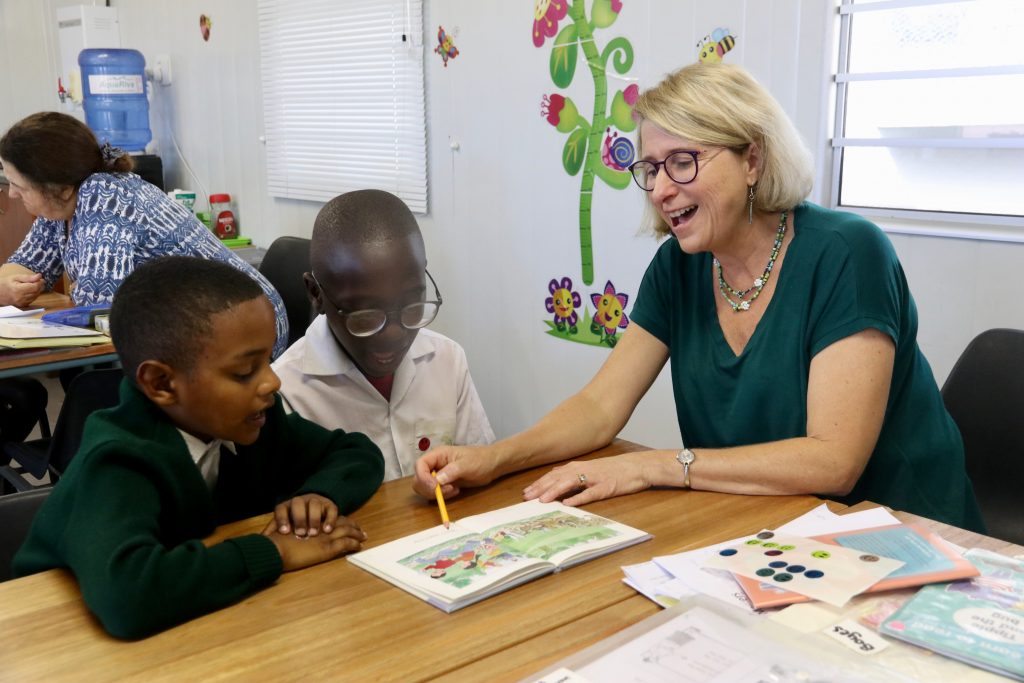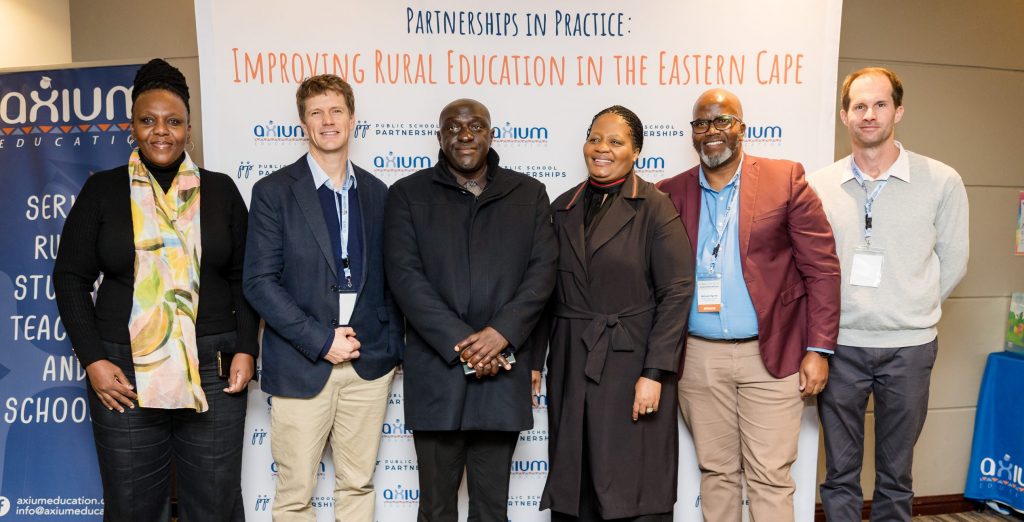I have forgotten how many times in the past 10 years have I made the two day drive up to Coffee Bay, the Cape Fold Mountains stroking my left shoulder for most of the first day, views of emerald green fields juxtaposed with the butter yellow of the canola in flower. The next day often a little more wearisome, a long, winding road that seemed to never end, constantly going up and down passes but the mountains forever appearing to be layers of distant blue. I usually turned off the N2 fairly late in the day onto the road that felt more like Africa – all manner of livestock milling about, kids and old people walking for miles, and no real safety fences or barriers to save you from careening off the road that suddenly disappears from sight in the fading light.
The Coffee Shack has become my second home and family. A busy, lively place, with a steady stream of young travellers from all over the first world, the large communal dinner table always a buzz of sharing experiences and swopping stories, the energy and sense of possibility – youth moving into their next stage of development, finding out their purpose in this world, keen and positive about their futures. Every one of them full of optimistic words and feelings about our colourful yet troubled country. If only most of us living here could experience it again, afresh, with new non- judgmental eyes, perhaps we could surmount some of our feelings of ill-will and despair.
I originally arrived in Coffee Bay in 2013 with the purpose of being a guide in the one and only newly built Montessori school. There were only 9 children from Dawn’s original little Ikhaya Labantwana rondawel school, the other 35 brand new children still rushing about with excitement at the novelty of it all. It only took a matter of weeks for them to become settled and purposeful – living proof of Maria Montessori’s observations that a huge change happens as soon as the child becomes constructively engaged with meaningful activity. As the number of schools grew to 3, 5, 7, I have had the privilege to witness the universal qualities of children allowed to be in their natural state – their intrinsic need for order and perfection, their joy in obedience, their being comforted by routine and how natural it is to be caring towards each other. I am convinced every school across the globe is a carbon copy of each other – industrious 3 year olds, busy as bees, single-mindedly building their skills and personalities – 4 year olds – boys who roll around the floor in 2’s and 3’s, “hiding” behind constructions with prisms and cubes, small groups of girls in deep discussion, endlessly drawing yet another picture, and lastly, the 5 year olds- drifting about, building up the momentum for a “big,” focused activity.
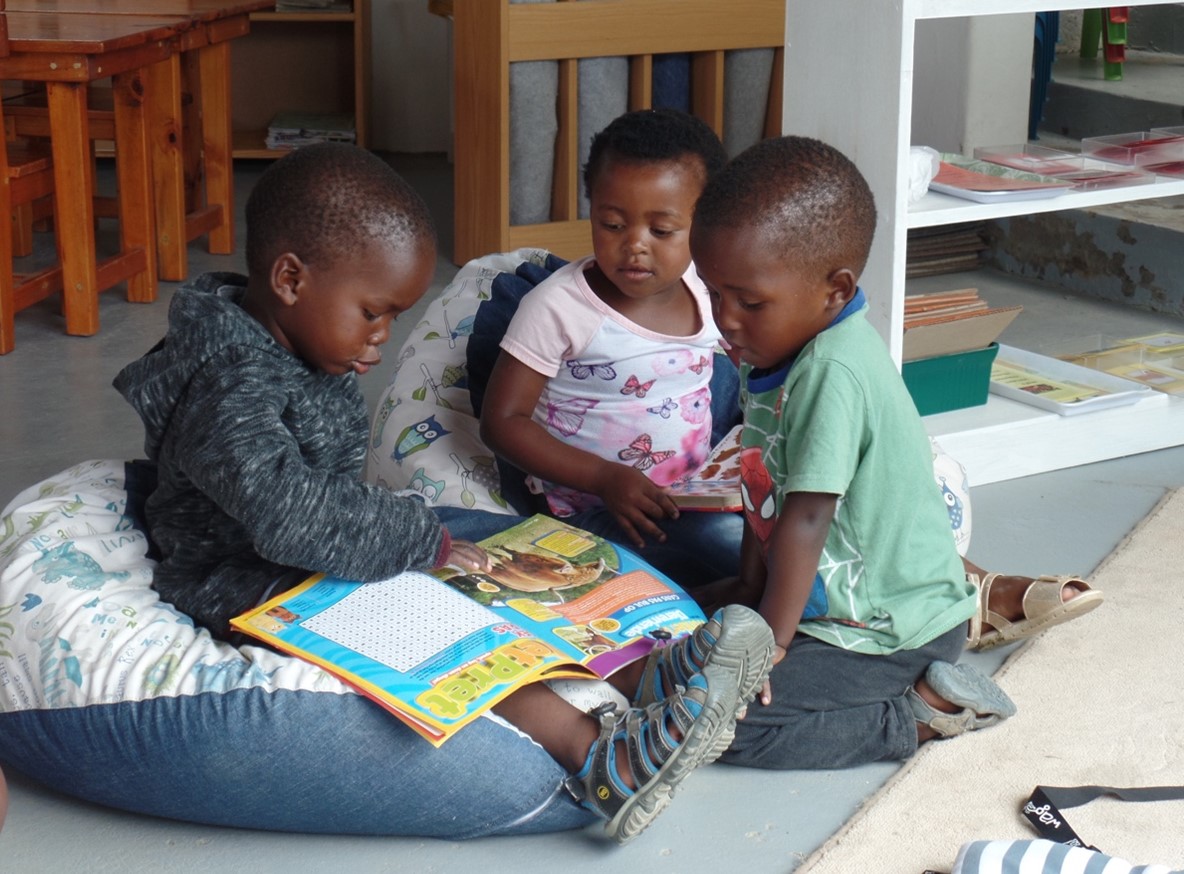
One can never predict what will attract a child: a feisty 3 year old girl who tirelessly lays out sets of cards on a mat simply so that she can practice putting the elastic bands back on the pack; another repeatedly sorting pictures to learn the English names. Nor can one underestimate how effortlessly the child can learn: a small, quiet unassuming boy watches others building the number rods over a few days, then takes them out himself and counts each one in perfect sequence; another’s self-discovery of reading; another applies the names of geometric solids to the world around her; all so simple, yet all astounding. It blew me away how easily the children exploded into speaking English, given only the chance to hear it spoken. In just a couple of months, single words that were fixed in the mind then tumble out in organised comprehensive sentences. What was subconscious absorption becomes conscious expression, truly a miracle to behold.
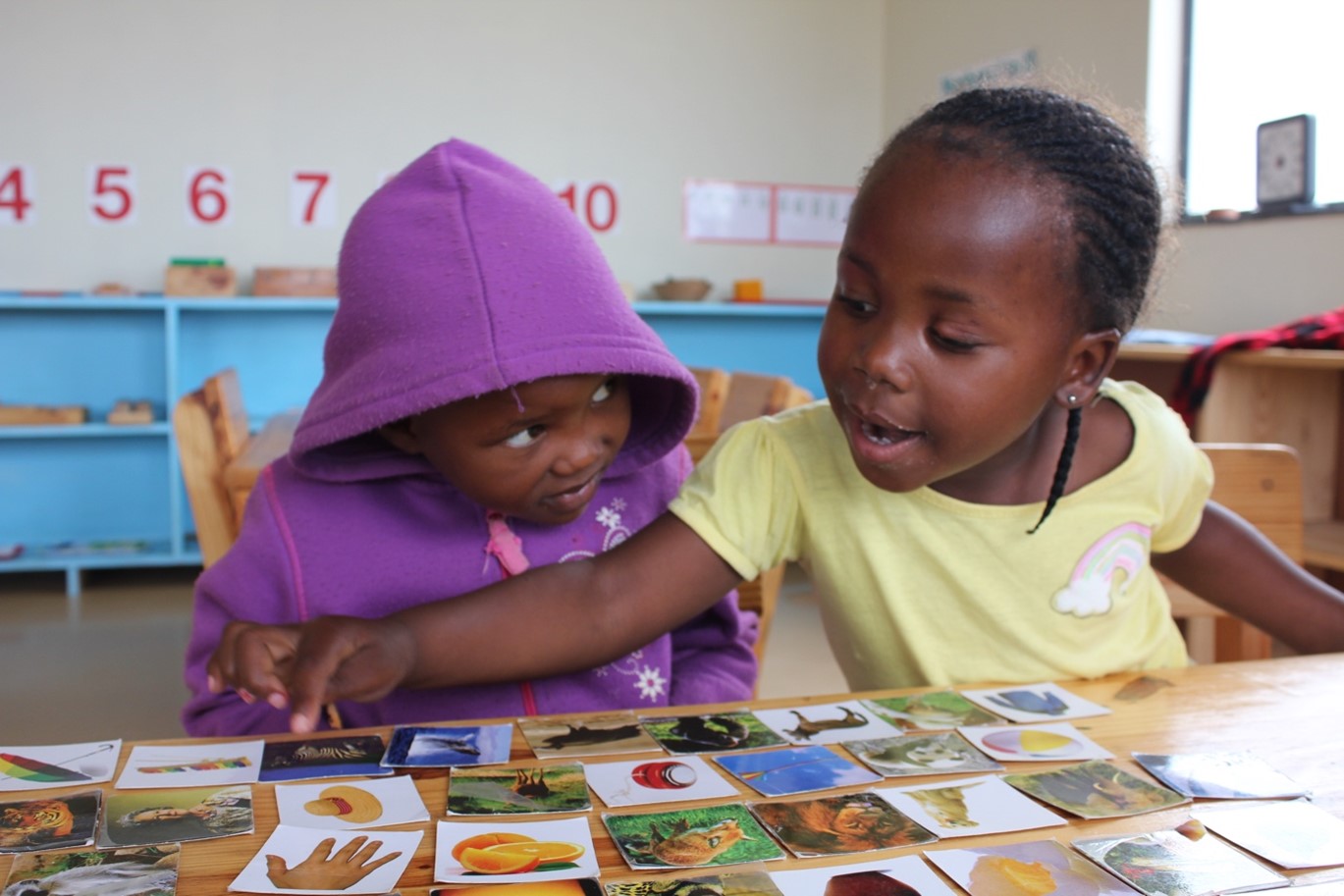
My main thrust and purpose has been to facilitate the Montessori teacher training. The original 2013 group of 12 dwindled to 7, with 4 of those still the core, dedicated ladies who continue to lead the way. Word of their work spread on the winds and soon enquiries came in from far flung places all over the Eastern Cape and so a second cohort of 16 began in 2019. Despite the challenges Covid 19 threw at this group, 10 of them have persisted against all odds and will finally receive their qualifications early in 2024.
“Training days” end late and there are a few that have more than an hour long walk back home. I figured that the least I could do was eliminate kilometres off their journey. As with anywhere in Africa, if there is something with wheels and it’s free, everyone climbs on. Needless to say, most times I have 6 or more in the car. By ensuring there is an empty boot, not only does it get rid of a few unnecessary kilograms, it makes space for those willing to ride in there!
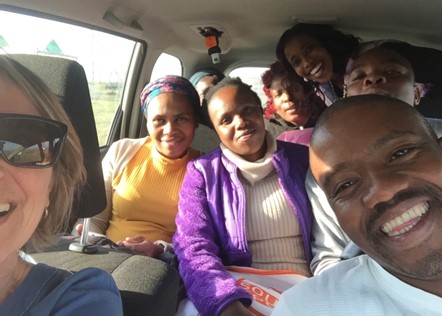
At first everyone was self-conscious and unsure of themselves because although the majority have a basic command of the English language, for all students it is their 2nd or even 3rd language, but regular visits by my Xhosa speaking Montessori colleagues to initiate mother tongue discussions has supported understanding to not only be in the mind, but also in the heart. It has been warming to see the growth in confidence and ease in the students’ spoken and written English. Many of the group have not been involved in studies since their school days. Re-engaging their reading, writing and thinking skills has been a self-affirming experience for them and many have stated how good it feels to be “using our brains” again. We have covered material that has really stretched their minds, opened their eyes and presented the understanding to a different, more sensitive way to approach the child.
There is a healthy and collaborative dynamic in the group of educators as a whole. They enjoy being together, sharing their ideas and drawing strength from one another for their studies and the work in their schools, seeing themselves as part of an empathetic network rather than as isolated individuals. I have been continuously struck by their dedication and conviction and humbled at how each individual rises above their own personal challenges to attend the training and the professional development sessions. The last couple of years has shown increasing evidence of momentum, ownership and initiative as each one has become more self-assured, competent and engaged. There is a general agreement that their schooling was not a life-supporting experience and wished to see something different for their own children and coupled with the realisation that this method is very different to their own experience and requires deep reflection and changing attitudes, the potential of their future work within their respective communities will be far-reaching and I look forward to watching from the sidelines.
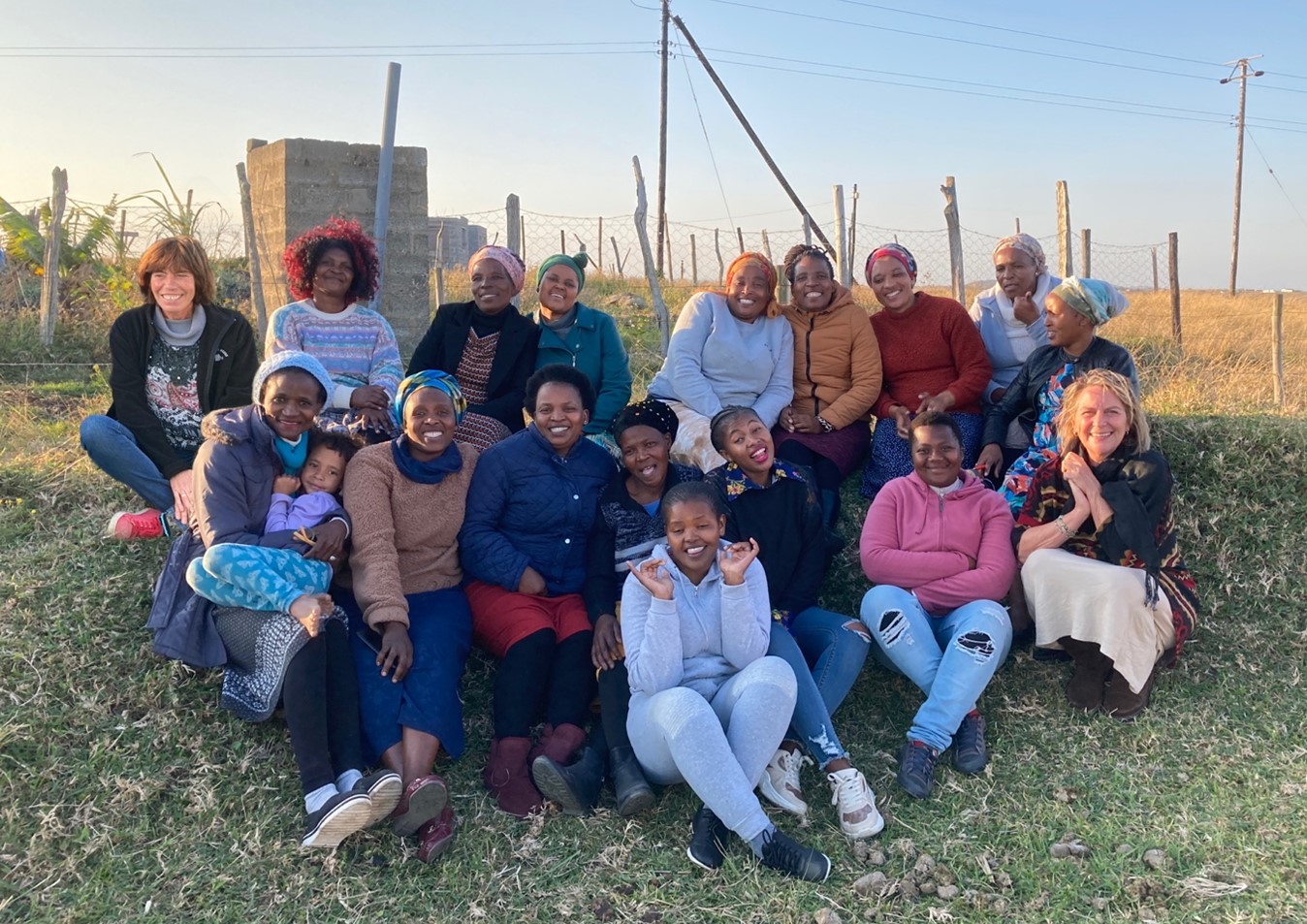
The unwavering support of Kamvalethu Foundation, far beyond just the financial, has made this all possible Each individual child and adult I have had the pleasure to meet and work with has left a little mark on me, making me more of who I am today and how I will be with others as I continue my “Monte-story” in other communities across our precious country. There can never be a hard good bye, my heart could not take that.

